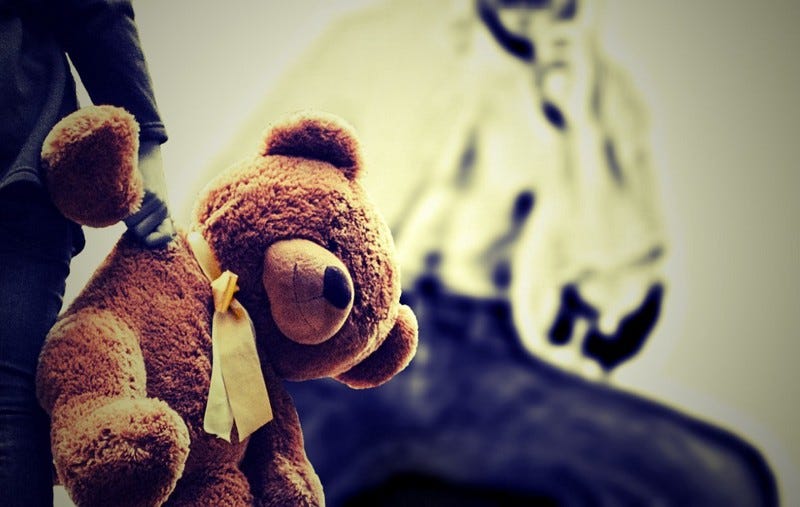Here’s what you can do.
First published at The Better India, The MINDS Foundation.
Abuse can take place in homes, schools, orphanages, residential care facilities, on the streets, at the workplace, in prisons or places of detention. Child abuse is one of the most insidious crimes increasing at an alarming rate globally. One of the lesser reported crimes, it is rampant across all socio-economic sectors and topographies. The problem with abuse is that it is repetitive and in most cases, it involves a perpetrator known to the victim.
UNICEF defines child abuse as an act of violence against children that may be physical or mental, may be in the form of injury, neglect or exploitative negligent treatment. In addition, the World Health Organisation (WHO) adds that the abuse may be of several kinds — physical, mental, emotional, psychological or in the form of neglect or exploitation.
Hence, there is a breach of trust and this affects the child much more intensely than it affects an adult.
According to one of the reports by the Women and Child Development Department, children aged 5–12 years are at the highest risk of abuse and exploitation. At a younger age, boys and girls both are at a risk of getting abused. However, the number of boys sometimes outnumbers that of girls.
Abuse of any nature affects the healthy development of a child. It has been well researched that several areas of the brain are profoundly impacted by abuse, leading to multiple impairments.
The emotional lobe, memory centre, decision-making centre and many other specific critical areas of working in the brain are impacted by abuse. This changes the way an individual engages in those (respective) processes.
These changes leave victims more vulnerable to mental health trauma and ill-being. The link between abuse in childhood and health maladjustment in adulthood is well established though less acknowledged.
Some psychiatric implications can be- mood disorders such as depression, anxiety disorders like panic attacks or phobia, eating disorders like anorexia nervosa, post-traumatic stress disorder (PTSD) and chronic pain syndromes.
Medical illnesses include — fibromyalgia, chronic fatigue syndrome, and irritable bowel. Studies have also reported that those who have experienced childhood abuse are more likely to engage in high-risk health behaviours including smoking, alcohol and drug use, and unsafe sex.
Research findings conclude that those who have suffered abuse have an overall poorer health and are more likely to use the health services. Also, it lowers the self-esteem of the child, dwindles the self-confidence and damages the self-image of the child.
The bio-psycho-socio implication of abuse demands not just attention but immediate intervention and humongous re-learning.
Parents, school teachers and management, medical professionals, mental health professionals and government policymakers, along with the entire society of citizens, are the stakeholders that bear the responsibility of managing the burden of child abuse.
It is crucial that we secure the future well being of our to-be ambassadors by making them feel secure and providing them safety. This learning begins at home.
Here are some quick pointers that we all can imbibe and spread to create security for our children:

1. Know what child abuse it. Educate yourself and be aware. Support intervention programmes.
2. Create an environment of safety for children to share their experiences — good or bad.
3. Listen to them intently. Believe them. Talk about abuse in a manner that it helps the child understand and feel safe.
4. Know how children communicate. If they are speaking in broken parts, if they are keeping too silent, if their reactions are unusual or if they are completely shut down- don’t let it go otherwise. Intervene and discuss.
5. Every child has their way of expressing and behaving. Don’t reprimand the child for everything. Punish his or her behaviour but also teach them the right thing. Without teaching what is right, the child will never learn what actually went wrong.
6. Don’t stop yourself from rewarding the child about his or her achievement.
7. Learn to make them feel confident and good about themselves. It is important that they feel comfortable with their identity.
8. Unconditional positive regard and love are what not just children, but everyone, deserves. It costs nothing to love unconditionally.
9. Sex education is essential when children are young. If you feel uncomfortable, take them to a psychologist who can help communicate safety and important facts about growing up in an appropriate manner.
10. Learn the facts and understand the risks of abuse. Reduce one-child/one-adult situations.
11. Take time to spend with your child. A strong and nurturing parent-child relationship is quintessential to healing.
12. Be aware of the laws and keep the well being of the child paramount while taking action.
13. Teach children their rights. Make them learn what is right and wrong, what is acceptable behaviour and what is not. Instil the feeling of confidence in them by teaching them adequate assertiveness.
14. Discuss these issues at school at an appropriate age level so that children understand the essence of abuse as a group. This can help build support for each other.
15. Teachers must identify signs in class and be alert to intervene.
16. Education and awareness are key to reducing the rising levels of abuse.
Child abuse is a responsibility for all major stakeholders in the society. Collective effort and amplified education coupled with awareness have the potential to change the present debilitating scenario of child abuse — not just in India but on a global level.
The initiative does not merely come from the stakeholders but from each and every one of us.
Feature Image Credit: Annie Spratt on Unsplash
Pragya Lodha is the COO and the National Lead (Mental Health) at One Future Collective.